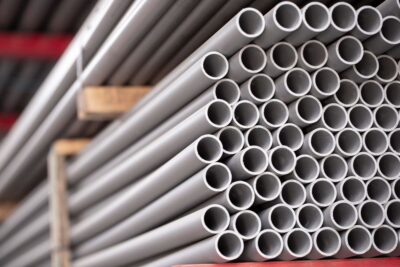PVC (polyvinyl chloride) is one of the most widely used and versatile materials in the modern world, but its impact often goes unnoticed. Far beyond its reputation in plumbing, PVC products are vital in supporting safety, hygiene, efficiency, and durability across a wide range of industries.
From healthcare and food production to logistics and manufacturing, PVC contributes to cleaner environments, smoother operations, and long-term cost savings. Here are 10 surprising ways PVC adds value across industries.
1. Hygienic Wall and Ceiling Systems in Food Processing
Food safety is non-negotiable, and PVC wall and ceiling panels are trusted for their non-porous, easy-to-clean surfaces. These systems help food processors maintain sanitary environments that meet regulatory standards without constant repainting or repair. Moisture-resistant and highly durable, PVC panels help prevent contamination and streamline cleaning.
2. Sterile Surfaces in Healthcare Facilities
Hospitals, laboratories, and cleanrooms rely on PVC panels for hygienic wall cladding and ceiling finishes. These surfaces resist chemical cleaners, bacteria, and mold, making them ideal for high-risk environments. PVC also supports infection control protocols without sacrificing ease of maintenance.
3. Impact-Resistant Panels in Warehousing and Logistics
High-traffic logistics environments demand materials that can take a beating. PVC protective wall systems are used in warehouses, loading docks, and corridors to prevent structural damage from forklifts, carts, and equipment. This reduces maintenance costs and improves the longevity of facility interiors.
4. Moisture-Resistant Solutions in Cold Storage
Facilities with temperature-controlled environments, such as cold storage and refrigeration units, use PVC because it remains stable and resistant to condensation. PVC panels won’t warp, rot, or rust, making them ideal for wet or humid conditions where traditional materials would degrade quickly.
5. Cost-Effective Interior Finishes in Agriculture and Animal Care
PVC wall and ceiling panels are commonly used in poultry farms, veterinary clinics, and stables. Their smooth, chemical-resistant finish simplifies cleaning while withstanding animal waste, humidity, and disinfectants. The result is healthier environments for animals and lower maintenance demands for facility operators.
6. Clean Design in Commercial Kitchens
PVC plays a vital role in commercial kitchen design, offering fire-rated, hygienic wall panels that meet stringent safety standards and comply with food-grade requirements. These panels resist grease, moisture, and impact, and they make deep cleaning easy without deteriorating under heavy use.
7. Flexible Infrastructure in Pharmaceutical Manufacturing
Pharma facilities need sterile, compliant environments. PVC wall systems are often used in manufacturing suites, packaging lines, and cleanrooms for their smooth surfaces, chemical resistance, and ability to integrate seamlessly with HVAC and utility systems. They also meet ISO and GMP requirements in regulated spaces.
8. Quick Renovation Solutions for Schools and Institutions
Educational and institutional buildings use PVC cladding for quick, low-disruption upgrades. Schools benefit from easy-to-clean surfaces in hallways and cafeterias, while healthcare training facilities and research labs trust PVC panels for hygienic, durable surfaces that stand up to daily use.
9. Energy Efficiency in Building Envelopes
PVC is often used in insulation, cladding, and weather-resistant barriers that contribute to a building’s overall energy efficiency. Lightweight yet durable, these products reduce energy loss and help facilities meet environmental and sustainability goals.
10. Sustainability and Material Circularity
Modern PVC products are increasingly recyclable. Many manufacturers use recycled content in production or offer take-back programs. PVC’s long life cycle reduces waste, and its resistance to corrosion and degradation means fewer replacements over time—lowering overall environmental impact.
Conclusion
PVC may not grab headlines, but its impact across industries is undeniable. Whether supporting hygiene in healthcare, durability in logistics, or compliance in food manufacturing, PVC continues to prove its value in demanding, real-world environments.
As industries evolve and regulations tighten, the role of smart, low-maintenance materials like PVC will only grow. By choosing quality PVC products, businesses can reduce costs, improve safety, and operate more sustainably, all without compromising performance.
PVC isn’t just a building material. It’s a quiet workhorse behind cleaner, stronger, and smarter spaces across the global economy.
View the original article and our Inspiration here


Leave a Reply